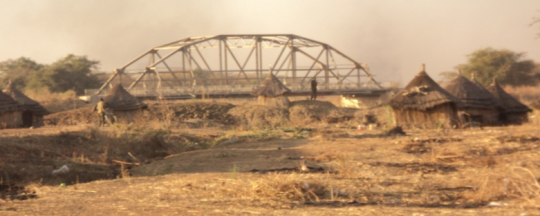Fresh fighting between Sudanese forces and the South Sudanese army (SPLA) on the border between both countries has killed an unconfirmed amount of people on Wednesday, 26 December.
Casualty reports vary between eight and 28 deaths in the area of Warguet, also known to Arab tribes as Samaha. At least 50 people of the Rizeigat tribe originating from East Darfur were wounded.
The area along the river Bahr al Arab, also known as the River Kiir, is currently under control of the South Sudan army (SPLA), who is claiming the area is part of Northern Bahr al Ghazal of South Sudan. Sudan, on its turn, is also claiming control of it asserting it belongs to the state of East Darfur.
Members of the Rizeigat tribe who inhabit the area are asking the international community to prevent the escalation of a full-scale war. A leader of the Rizeigat shura council, Mohamed Isa Aleu, confirmed he counted four dead bodies and tens of people wounded.
He also reported about a huge military build-up by the Sudan Armed Forces. “The SPLA has been shelling us from a distance of around 20 kilometers. We have been asking the government of Khartoum to solve the issue in a political way. For us, the river Bahr al Arab is the only source for drinking water for the cattle. The situation becomes a matter of life or death for us in the coming months”.
Sources among the villagers in the area of Samaha said the ground attacks were severe. An eyewitness told Radio Dabanga: “At least 25 people are confirmed dead. Ten people were injured, and another eight sustained severe injuries. We are afraid some might lose their limbs. We are hoping an airplane will transfer the people to a hospital in Khartoum”.
A spokesman of the Rizeigat tribe said that the entire population is asking for a quick intervention of the international community to prevent the occurrence of a full-scale war between Sudan and South Sudan. “We hope that the African Union and the United Nations will act fast, otherwise we might be caught in the middle of another war”.
SPLA blames SAF
The spokesman of the SPLA, Colonel Philip Aguer, blamed the Khartoum government for starting the hostilities in the border area.
He said: “Today 26 December the Sudan Armed Forces launched a ground attack on the SPLM base in Warguet, which was supported by air bombardments carried out concurrently between 8 and 12 o’ clock. The Antonov dropped 11 bombs in the morning and another 14 around noon.”
According to the SPLA the southern army defeated the SAF of Khartoum and let them move back beyond Meiram (village in South Kordofan), but it could not prevent the killing of two women and one child. The SPLA claims the area belongs to the South, mentioning the recent agreement between them and the SAF in Addis Ababa, Ethiopia.
“The intention of this aggression is unknown, but the SPLA has been monitoring the other side of the border and the River Kiir before this unjustified attack took place today. Khartoum’s forces have been trying to occupy this area of Warguet. But the SPLA will continue to frustrate them”, the southern army’s spokesman added.
“We expect this not to be the last attack on Warguet, since it is the third one. The SPLA is taking precautions for another attack that Khartoum may plan,” Aguer told Radio Dabanga.
Previous escalations
In May 2012 the situation in Warguet also became tense after the SLPA accused the SAF for bombing its territory. Although independent verification in the area was not possible, only fighting north of the river was confirmed by independent sources. The area is inaccessible for civilians.
Church visitors authored a report on the situation in Warguet in December 2011 and noticed by then that Warguet and other areas on the south bank of the Bahr El Arab/Kiir River were highly militarized.
Warguet is described as a ‘military barrack’ of the 3rd Division of South Sudan’s army.
Bishop Abraham Yel Nhial led the visit together with military chaplains in order to provide spiritual encouragement to soldiers. He traveled in an army convoy to reach Warguet “because the whole area was not secure”, according to the report by the Episcopal Diocese of Aweil.
“This place is a very dangerous and fearful place, even those who have heavy machines hardly come here… it is a dangerous place, only for soldiers,” said Lt. Col. Gabriel Door, a commander at Warguet, as quoted in the diocesan report.
According to a detailed map authored by geographers at the University of Bern Centre for Development and Environment Geoprocessing Unit -who for years have mapped Sudan and South Sudan- the village ‘War Guit’ lies just about five kilometers south of the Bahr El Arab/Kiir River along the Wau-Babanusa railway.
The picture shows the Kiirkou Bridge on the Bahr El Arab/Kiir River, just north of Warguet.
Cross-posted at RadioDabanga.org




